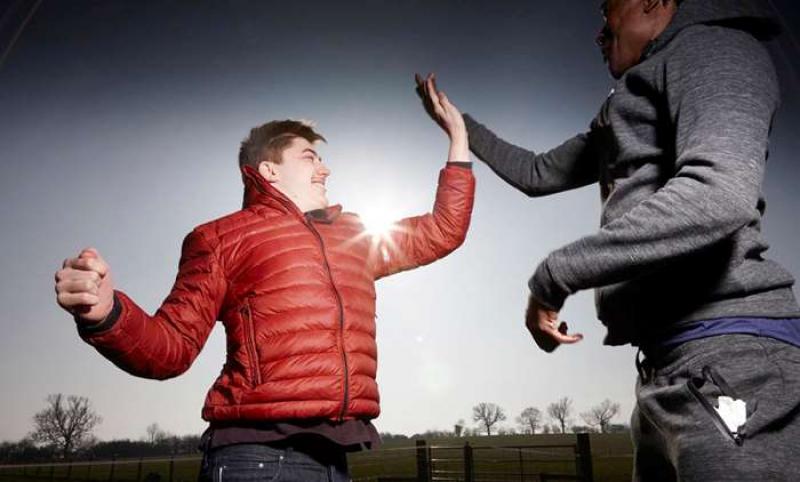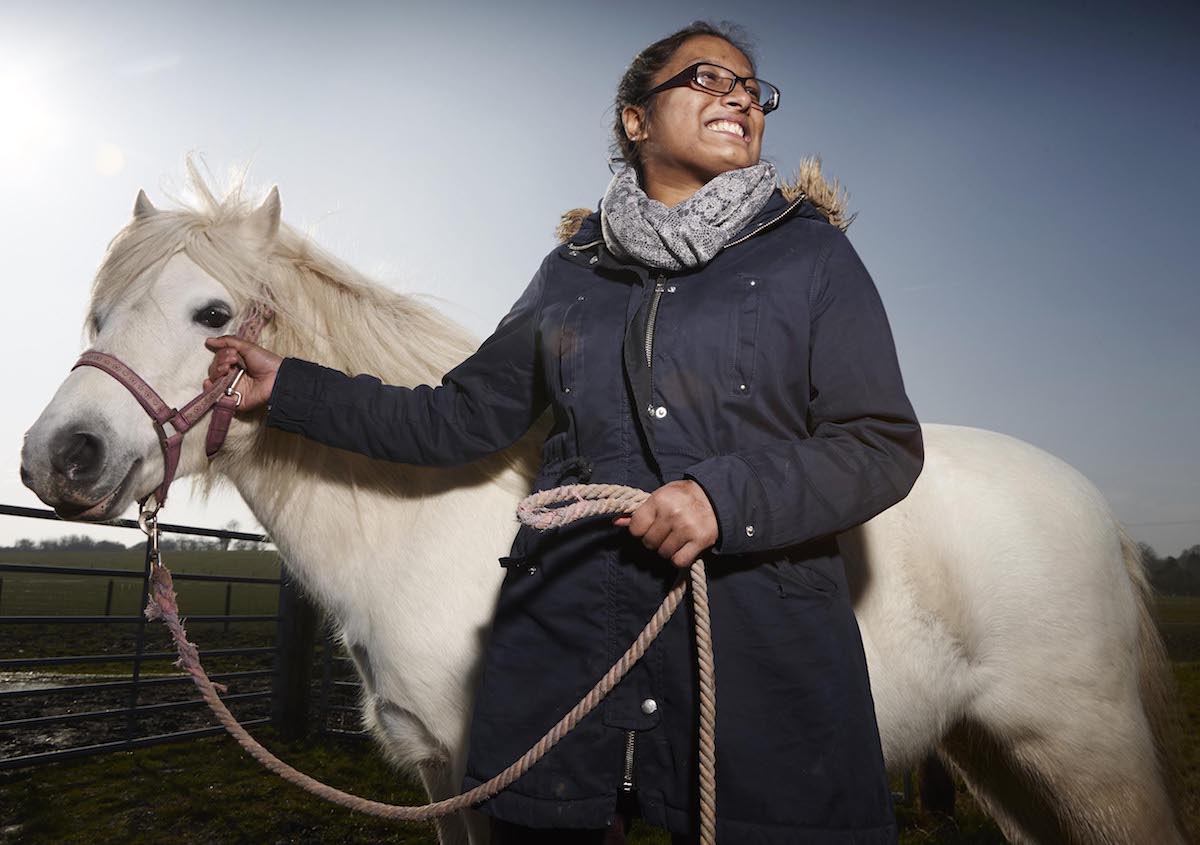Dispatches: Under Lock and Key, Channel 4 | reviews, news & interviews
Dispatches: Under Lock and Key, Channel 4
Dispatches: Under Lock and Key, Channel 4
Disturbing documentary about life inside a hospital for people with learning disabilities or autism

Five years ago BBC Panorama went undercover, sending in a reporter with a hidden camera to expose the horror going on at Winterbourne View, a hospital for people with learning disabilities and/or autism. There was outrage as the nation watched Winterbourne’s patients being tortured, degraded and abused by staff.
Sadly, tonight's Dispatches showed that five years on, people are still being held in institutions that do not meet their needs, make them better, or in some cases, even keep them safe. While Dispatches did not go undercover and did not reveal any actively sadistic staff, it did paint a damning picture of medical neglect, inadequate treatment and families excluded from decision making.
There was incisive criticism of institutional care from MP Norman Lamb
The programme’s focus was on St Andrew's in Northampton, which is one of Britain’s largest psychiatric hospitals. It has been run as an independent charity since 1838 with 95 per cent of its patients referred by the NHS. There was no access to the hospital for film-maker Alison Millar, who instead relied on three families to tell their stories outside its walls. We met Fauzia, diagnosed with autism and learning disabilties; at 15 she had become too aggressive and self-harming to live at home.
She was sectioned under the Mental Health Act and kept in St Andrew's for over two years. Segregated from other patients and prescribed anti-psychotic medication, Fauzia's behaviour deteriorated further. She was occasionally physically restrained and confined to a small room for most of her days. She was lucky to have a very eloquent aunt, herself a psychiatrist, who gave a devastating description of her niece's treatment.
We also met the parents of Matthew (main picture); they had originally fought to get their teenage son into St Andrew's because they thought he would receive specialist care that would help him with his aggression, but ended up desperate to get him out as it became clear that the regime wasn't helping him. His parents described how they felt he was punished for being autistic and how they worried about his health as he lost three stone in six months. We saw footage of the excrement found in his shoes when they visited and heard of the face-down restraint positions used.
Most distressing was the story of Bill; he had suffered a brain injury at birth and was later diagnosed with schizophrenia and sent to St Andrew's, where he died in 2011. An inquest concluded that there had been medical neglect and awarded compensation to his elderly parents (who described it as blood money, and have since given it to improve local support for mentally-ill people).
 In the absence of access to the hospital itself, Millar had to rely on moody aerial shots of its extensive buildings, family footage from phones at visits, home movies and photographs of their loved ones to intercut with interviews and present-day footage. We heard directly from Matthew and Fauzia (pictured above) who have left St Andrew's and are much happier in smaller units where the staff work hard to manage the anxiety, sensory overload and obsessions that triggered their aggressive behaviour. It was heartbreaking to hear Bill singing about death on a recording that his parents had kept. Under Lock and Key was a powerful testament to the perseverance of campaigners and parents who listened to their distressed children, all of whom had speech. I couldn't help worrying about those autistic or learning disabled people kept in institutions who do not have any means of communication or family or friends to fight their corner and bring them to the media's attention.
In the absence of access to the hospital itself, Millar had to rely on moody aerial shots of its extensive buildings, family footage from phones at visits, home movies and photographs of their loved ones to intercut with interviews and present-day footage. We heard directly from Matthew and Fauzia (pictured above) who have left St Andrew's and are much happier in smaller units where the staff work hard to manage the anxiety, sensory overload and obsessions that triggered their aggressive behaviour. It was heartbreaking to hear Bill singing about death on a recording that his parents had kept. Under Lock and Key was a powerful testament to the perseverance of campaigners and parents who listened to their distressed children, all of whom had speech. I couldn't help worrying about those autistic or learning disabled people kept in institutions who do not have any means of communication or family or friends to fight their corner and bring them to the media's attention.
There were no interviews with staff at St Andrew's, but incisive criticism of large-scale institutional care from MP Norman Lamb, a longstanding campaigner for reform who helped Fauzia's family get her out of St Andrew's. Matthew's family had enlisted their MP, Helen Hayes. She described being shocked that a meeting she attended with Matthew’s parents had minutes which did not reflect its content, and was signed by Matthew who had been absent for most of it.
Expert psychologist Glynis Murphy gave her opinion that large institutions like St Andrew's – noisy, busy, with high staff turnover – made matters far worse for people already severely distressed and suffering from sensory overload. For decades, dedicated film-makers have made TV documentaries exposing conditions in Britain’s hospitals for the mentally ill or those with learning disabilities. Every time, they make headlines, and promises are made to reform the system. But despite the outcry, the number of people kept in large hospitals stays stubbornly high. It would be wonderful if this Dispatches was the last such film and we were shamed into reform, but in our age of austerity, how likely is it?
Add comment
The future of Arts Journalism
You can stop theartsdesk.com closing!
We urgently need financing to survive. Our fundraising drive has thus far raised £49,000 but we need to reach £100,000 or we will be forced to close. Please contribute here: https://gofund.me/c3f6033d
And if you can forward this information to anyone who might assist, we’d be grateful.

Subscribe to theartsdesk.com
Thank you for continuing to read our work on theartsdesk.com. For unlimited access to every article in its entirety, including our archive of more than 15,000 pieces, we're asking for £5 per month or £40 per year. We feel it's a very good deal, and hope you do too.
To take a subscription now simply click here.
And if you're looking for that extra gift for a friend or family member, why not treat them to a theartsdesk.com gift subscription?
more TV
 Murder Before Evensong, Acorn TV review - death comes to the picturesque village of Champton
The Rev Richard Coles's sleuthing cleric hits the screen
Murder Before Evensong, Acorn TV review - death comes to the picturesque village of Champton
The Rev Richard Coles's sleuthing cleric hits the screen
 Black Rabbit, Netflix review - grime and punishment in New York City
Jude Law and Jason Bateman tread the thin line between love and hate
Black Rabbit, Netflix review - grime and punishment in New York City
Jude Law and Jason Bateman tread the thin line between love and hate
 The Hack, ITV review - plodding anatomy of twin UK scandals
Jack Thorne's skill can't disguise the bagginess of his double-headed material
The Hack, ITV review - plodding anatomy of twin UK scandals
Jack Thorne's skill can't disguise the bagginess of his double-headed material
 Slow Horses, Series 5, Apple TV+ review - terror, trauma and impeccable comic timing
Jackson Lamb's band of MI5 misfits continues to fascinate and amuse
Slow Horses, Series 5, Apple TV+ review - terror, trauma and impeccable comic timing
Jackson Lamb's band of MI5 misfits continues to fascinate and amuse
 Coldwater, ITV1 review - horror and black comedy in the Highlands
Superb cast lights up David Ireland's cunning thriller
Coldwater, ITV1 review - horror and black comedy in the Highlands
Superb cast lights up David Ireland's cunning thriller
 Blu-ray: The Sweeney - Series One
Influential and entertaining 1970s police drama, handsomely restored
Blu-ray: The Sweeney - Series One
Influential and entertaining 1970s police drama, handsomely restored
 I Fought the Law, ITVX review - how an 800-year-old law was challenged and changed
Sheridan Smith's raw performance dominates ITV's new docudrama about injustice
I Fought the Law, ITVX review - how an 800-year-old law was challenged and changed
Sheridan Smith's raw performance dominates ITV's new docudrama about injustice
 The Paper, Sky Max review - a spinoff of the US Office worth waiting 20 years for
Perfectly judged recycling of the original's key elements, with a star turn at its heart
The Paper, Sky Max review - a spinoff of the US Office worth waiting 20 years for
Perfectly judged recycling of the original's key elements, with a star turn at its heart
 The Guest, BBC One review - be careful what you wish for
A terrific Eve Myles stars in addictive Welsh mystery
The Guest, BBC One review - be careful what you wish for
A terrific Eve Myles stars in addictive Welsh mystery
 theartsdesk Q&A: Suranne Jones on 'Hostage', power pants and politics
The star and producer talks about taking on the role of Prime Minister, wearing high heels and living in the public eye
theartsdesk Q&A: Suranne Jones on 'Hostage', power pants and politics
The star and producer talks about taking on the role of Prime Minister, wearing high heels and living in the public eye
 King & Conqueror, BBC One review - not many kicks in 1066
Turgid medieval drama leaves viewers in the dark
King & Conqueror, BBC One review - not many kicks in 1066
Turgid medieval drama leaves viewers in the dark
 Hostage, Netflix review - entente not-too-cordiale
Suranne Jones and Julie Delpy cross swords in confused political drama
Hostage, Netflix review - entente not-too-cordiale
Suranne Jones and Julie Delpy cross swords in confused political drama

Comments
I have a put yet another
I too have a daughter in St
I DO blame the parents! Why
Ugh Em. What an unnecessary
"Bad genes?" What shill -paid
Are you fucking serious. Do
Are you serious. Do you have a child? And one with special needs? How the **** can you say that? It's not our choice you moron.
Only someone incredibly
Em, I actually feel sorry for
I think this may be a valid
Excellent programme. Now will
Thank you channel 4 for
This program makes unfounded
You probably work there that
I think bills postmortem
I would agree that there were
FINALLY somewhere that we can
What a travesty ...
This was an important topic
My son spent 2 years on the
I worked there for awhile and
I can talk from first hand